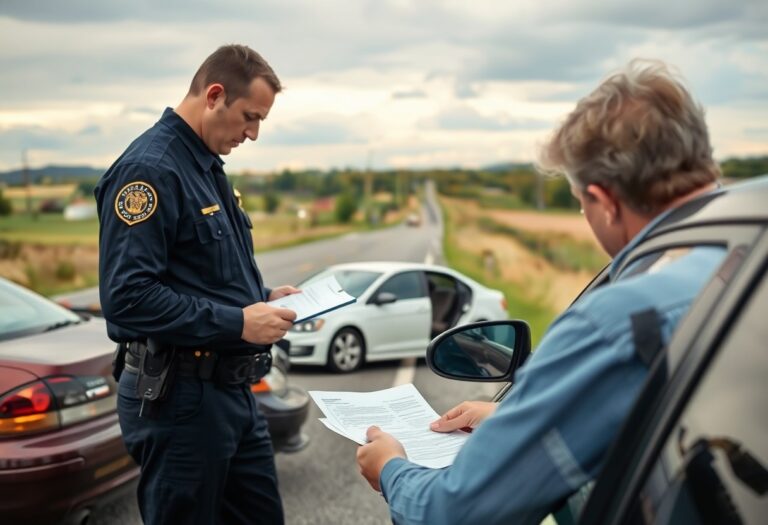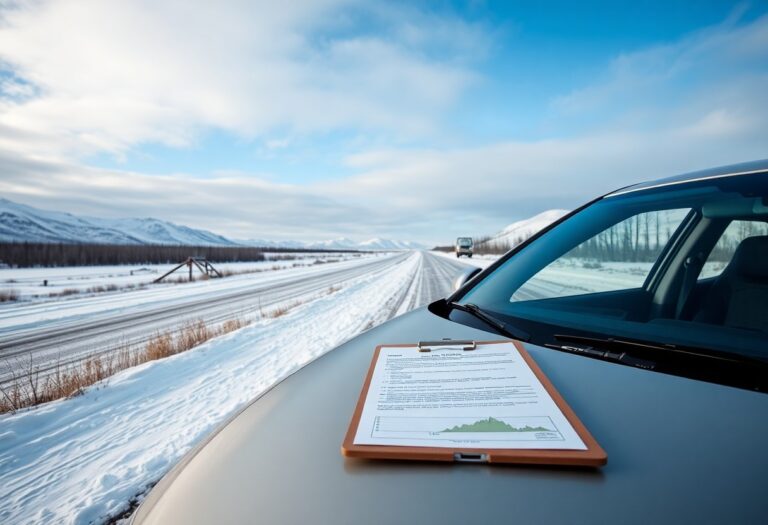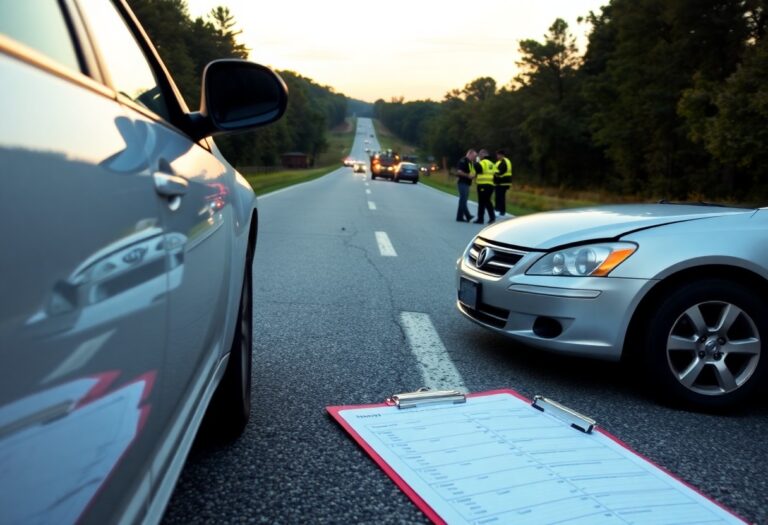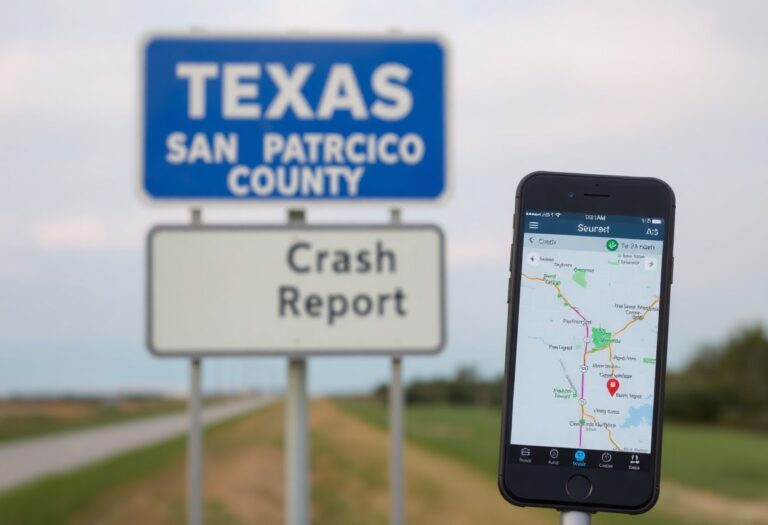Over the years, understanding the process for obtaining crash reports in Sussex County, Virginia, has become increasingly imperative for drivers. If you find yourself involved in an accident, knowing how to navigate this process can significantly enhance your chances of a smooth claim process. This guide will provide clear and concise steps to help you obtain your report swiftly, ensuring that you have all the necessary information to protect your interests and facilitate any ensuing insurance claims.
Navigating Insurance and Legal Obligations
Your next step involves understanding the implications of crash reports on your insurance and legal responsibilities. This process influences how claims are processed and what liabilities you may face. The details captured in the report can affect both your coverage and any future premiums. Ensuring you handle this correctly not only aids in a smoother claim experience but also protects your rights and interests moving forward.
Why Crash Reports Matter in Virginia
Crash reports in Virginia serve as official documentation of the incident and play a significant role in insurance claims and legal proceedings. They provide vital information, including the time, location, and individuals involved, all of which are necessary for substantiating your claims with insurance companies. Without a crash report, you may find it difficult to establish liability or seek compensation for damages.
Understanding the Legal Framework
The legal framework surrounding traffic incidents in Virginia mandates that all accidents resulting in injury, death, or property damage must be reported. These regulations stipulate the timelines and required information that must be included in the report, impacting how you frame your claim. In Virginia, the police report is deemed an *official record*, and its contents hold significant weight in both insurance negotiations and potential court proceedings. Furthermore, the Commonwealth also follows a pure contributory negligence rule, meaning if you are found even slightly at fault, you may be barred from recovering damages. By grasping these intricacies, you can better navigate your obligations and enhance your chances of a favorable resolution. Understanding your responsibilities and the legal implications helps protect your interests and expedites your path to recovery.
Essential Information to Collect at the Scene
Gathering specific details at the crash scene ensures you have all necessary information for your report. This includes not only personal information from those involved but also vehicle specifics, weather conditions, and road conditions. Accurate documentation can greatly assist in any potential claims or legal disputes that arise after the accident.
Key Details: What to Record
Documenting names, addresses, and insurance details of all parties involved is vital. In addition, record the license plate numbers and make and model of vehicles. Taking note of time, location, and any nearby landmarks helps establish context. If applicable, mention the conditions on the road, such as weather, visibility, and traffic signals or signs.
Witness Accounts and Their Importance
Your crash report significantly benefits from statements made by witnesses at the scene. Eyewitness perspectives can provide an unbiased account of the incident, highlighting details that both parties might miss and potentially influencing the outcome of any claims or disputes.
Witness accounts serve as critical evidence when reconstructing the events leading to the accident. Their observations help clarify who may be at fault, offering insights into the sequence of events that may not be apparent from the involved parties. Maintaining contact information for witnesses ensures you can follow up for more detailed statements later. Capturing their testimonies as soon as possible helps keep their memories fresh, which can prove vital in any investigation or insurance claim that follows.
The Step-by-Step Process to File a Crash Report
| Step | Description |
|---|---|
| 1 | Gather necessary documentation. |
| 2 | Complete the crash report form accurately. |
| 3 | Submit the report online or in person. |
Gathering Necessary Documentation
To facilitate the reporting process, collect documentation such as your driver’s license, vehicle registration, insurance information, and any notes or photos taken at the accident scene. This ensures that the crash report is thorough and accurate, which can help in any subsequent claims or legal matters.
Submitting the Report: Where and How
Your crash report can be submitted online through the official Sussex County portal or in person at the local law enforcement agency. Ensure that all fields are correctly filled in before submission to avoid any delays or complications.
The online submission platform typically provides an easy-to-follow guide, allowing you to upload any supporting documents and photos. For those who prefer face-to-face interactions, visiting the local police department enables not just report submission but direct conversations with officers for clarifications regarding potential questions you might have about the paperwork or next steps in the process.
Common Pitfalls and How to Avoid Them
Many individuals underestimate the significance of comprehensive reporting and may fall into common traps. Effective reports require meticulous attention to detail, and missing vital information can hinder the clarity of your account. Avoid assumptions, such as thinking a verbal agreement is sufficient, and always document the scene thoroughly. Staying organized can lead to a smoother process and help you sidestep unnecessary complications.
Mistakes to Avoid During the Reporting Process
One prevalent error is providing inaccurate information, whether intentionally or not. Ensure that you double-check names, locations, and vehicle details. Additionally, relying solely on memory can lead to significant oversights; it’s wise to take notes immediately following the incident. Failing to include witness statements or photographs can weaken your report, so be comprehensive in your approach.
The Consequences of Incomplete Reporting
Incomplete reporting can lead to inaccurate claims, and this could delay the resolution of your case or even result in rejection from your insurance provider. In instances where inaccurate information is presented, you might face legal repercussions. Also, providing insufficient details may complicate police investigations, impacting accountability and potentially affecting the outcome of any claims or lawsuits. Always strive for completeness to protect your interests and ensure that justice is served.
If your report lacks critical facts, consider the impact it may have on your insurance premiums or your ability to file claims later. Incidents with insufficient detail can leave room for doubt, potentially causing disputes on fault determination. If your report is challenged, having an incomplete account might force you to accept liability even if you were not at fault. Always take the time to ensure your report is as accurate and detailed as possible to safeguard your rights and interests.
Post-Report Follow-Up: Next Steps
After submitting your crash report, a few key actions will help you navigate the aftermath effectively. This includes engaging with insurance companies, accessing additional resources, and understanding when legal advice is necessary. Each of these steps contributes to a smoother process as you recover from the incident, ensuring that you address any claims and potential disputes that may arise.
Engaging with Insurance Companies
Contact your insurance company promptly after the crash and provide them with the necessary details from your report. They will guide you through the claims process and outline what documentation they require from you. Having a clear record of the accident will speed up this process and allow you to advocate for fair compensation for any damages or injuries sustained.
When to Consult a Legal Expert
If your crash report reveals complex circumstances, such as negligence or liability disputes, seeking legal expertise may be your best course of action. Legal professionals can provide insight into your rights, help negotiate with insurance companies, and ensure you receive appropriate compensation, especially if your recovery involves substantial medical expenses or lost wages.
Consulting a legal expert can benefit you significantly, particularly in cases where the opposing party may contest liability. Legal professionals can assess the nuances of your case, gather crucial evidence, and advocate on your behalf, offering peace of mind when dealing with a potentially contentious situation. If insurance negotiations stall or if you receive an insufficient settlement offer, having an attorney by your side can empower you to fight for the compensation you truly deserve.
Conclusion
Ultimately, understanding the process for obtaining crash reports in Sussex County, Virginia, equips you with the necessary tools to navigate the situation effectively. By following the step-by-step instructions provided, you can ensure that you fulfill all requirements to access your reports efficiently. Whether for insurance purposes or personal records, knowing how to get your crash report can simplify the aftermath of an incident and keep you informed every step of the way.













